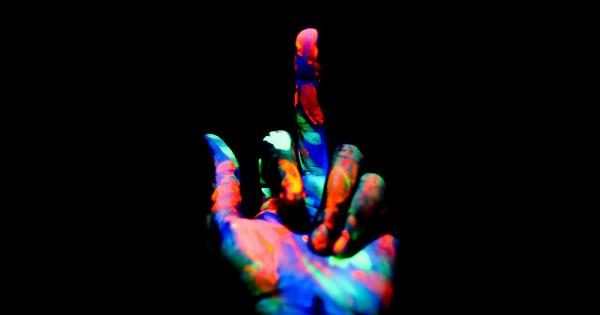Sleep is an essential part of human life, playing a crucial role in maintaining our physical and mental well-being.
However, in today’s fast-paced and demanding world, many individuals find themselves suffering from sleepless nights, struggling to get the rest they desperately need. Recent research has shed light on the concerning effects of sleep deprivation, revealing a direct link between insufficient sleep and a decrease in altruistic behavior, as well as an increase in feelings of hostility.
The Study
A team of researchers from renowned universities conducted a comprehensive study to investigate the relationship between sleep deprivation and altruism.
The study involved a diverse group of participants who underwent a series of sleep assessments and were then subjected to various tests measuring their levels of altruism and hostility.
Sleep Deprivation and Altruism
The results of the study revealed a clear correlation between sleep deprivation and decreased altruistic behavior.
Participants who reported consistently poor sleep were found to be less likely to engage in acts of kindness or selflessness compared to those who enjoyed healthy sleep patterns. This finding suggests that a lack of sleep contributes to a decline in the desire to help others and can hinder one’s ability to empathize and connect with fellow individuals.
Implications on Society
The implications of this research are significant, as altruism plays a vital role in establishing and maintaining a harmonious society.
Acts of kindness and selflessness are the building blocks of community, fostering social bonds and creating a supportive environment. When sleep deprivation compromises people’s ability to act altruistically, it not only affects individuals’ well-being but also impairs the fabric of society as a whole.
In a world grappling with countless social issues and divisions, promoting altruism is more crucial than ever.
Understanding the detrimental effects of sleeplessness on acts of kindness can help raise awareness and lead to interventions aimed at improving sleep hygiene and fostering a more benevolent society.
Sleep Deprivation and Hostility
Aside from the decrease in altruism, the study also highlighted an alarming increase in hostility among participants suffering from inadequate sleep.
Those who consistently experienced sleepless nights exhibited higher levels of irritability, aggression, and antagonism compared to their well-rested counterparts.
These findings come as no surprise, as sleep deprivation has long been recognized as a major contributing factor to mood and emotional regulation difficulties.
When individuals do not get enough sleep, their emotional control centers become compromised, leading to heightened anger, frustration, and hostility.
The Vicious Cycle
It is important to note that the relationship between sleep deprivation, decreased altruism, and increased hostility does not end there.
The impact of sleeplessness on our behavior forms a vicious cycle that can further perpetuate negative social interactions.
Individuals who experience a lack of sleep may find it harder to regulate their emotions, leading to heightened levels of hostility.
In turn, this aggressive behavior can alienate others and strain relationships, resulting in increased stress and further sleep disturbances. This cycle can continue to reinforce negative behaviors and exacerbate the harmful effects of sleep deprivation.
The Role of Sleep Quality
While it is common knowledge that the length of sleep is crucial, the quality of sleep also plays a significant role in determining its impact on behavior and well-being.
Even individuals who manage to clock in the recommended number of hours but are plagued by poor sleep quality may still experience a decline in altruistic tendencies and an increase in hostility.
Factors such as sleep interruptions, sleep disorders, or the use of electronic devices before bedtime can all influence the overall quality of sleep.
Therefore, it is not only the quantity of sleep that needs to be addressed but also the conditions that promote restorative and uninterrupted sleep.
Addressing Sleep Deprivation
Given the detrimental effects of sleep deprivation on altruistic behavior and mental well-being, it becomes imperative to explore strategies to address this pervasive issue.
Both individuals and society as a whole can take steps to prioritize and improve sleep hygiene.
Here are some tips to promote better sleep:.
- Establish a consistent sleep schedule, going to bed and waking up at the same time every day.
- Create a relaxing bedtime routine, such as reading a book, taking a warm bath, or practicing meditation.
- Make your sleep environment comfortable, cool, and free from distractions.
- Avoid consuming stimulants like caffeine or nicotine close to bedtime.
- Avoid using electronic devices, such as smartphones or tablets, before going to bed.
- Engage in regular exercise, but not too close to bedtime.
- Avoid large meals and excessive fluids before bedtime.
- Manage stress through techniques like deep breathing exercises or journaling.
- Seek professional help if experiencing chronic sleep problems or sleep disorders.
Conclusion
The link between sleep deprivation and diminished altruistic behavior, as well as increased hostility, sheds light on the importance of getting adequate and quality sleep.
It emphasizes the need to prioritize sleep hygiene not only for individual well-being but also for the betterment of society as a whole. By recognizing and addressing the impact of sleeplessness on our behavior, we can foster a more compassionate, understanding, and harmonious world.





























